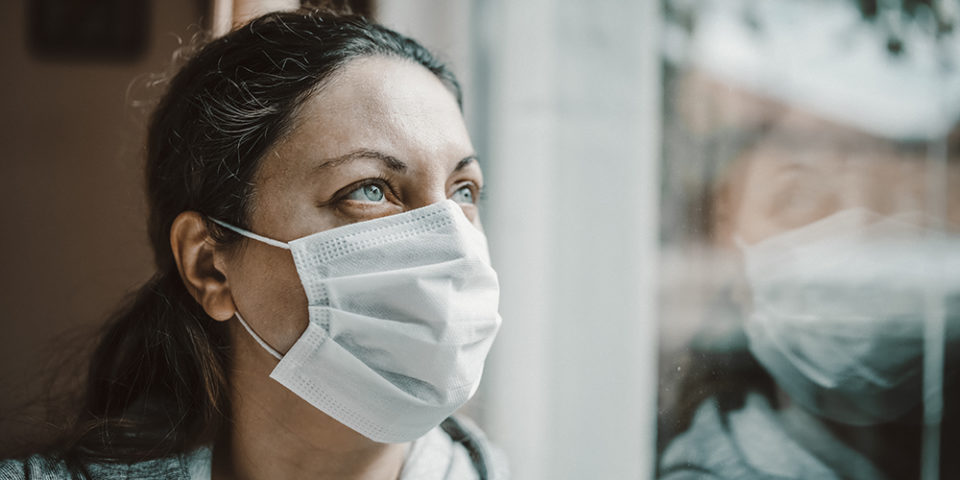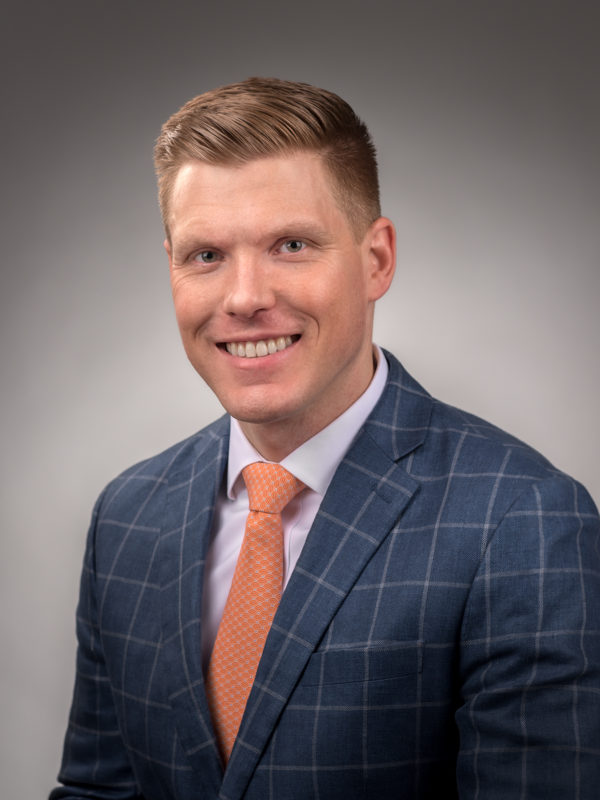Anxious about going out in public because of COVID-19? Three steps that can help
If the thought of going out in public cues feelings of anxiety, you are not alone. For some, their anxiety might even rise to the level of social anxiety, panic attacks or agoraphobia. Kenneth Phelps, PhD, an individual and relational therapist, explained how you can recognize and work through this anxiety and when it might be time to reach out for help.
What can you do if you feel anxious or panicked going out in public?
Dr. Phelps said it can be helpful to think of anxiety as a parrot seated on your shoulder all day. At times it sits quietly, and other times it squawks when perceiving danger, screaming, “Watch out! They are judging you. This is not going to go well. Avoid this situation!”
“The anxiety parrot’s catastrophic warnings can be intrusive and bothersome, though the intention is to help and keep you safe,” he said.
He offered three steps that can be helpful in working through these anxieties:
- Name it to tame it. This phrase, first coined by psychiatrist Dr. Dan Siegel, is about naming when you notice the parrot talking. Being aware when anxiety has you hooked is half the battle. Using noticing and naming skills can help get some distance from that metaphorical bird on your shoulder so you can decide what to do next. Examples include:
- “I notice anxiety is saying…”
- “I notice my mind predicting…”
- “I notice I’m having some discomfort show up in my body.”
- “I notice I’m having urges to avoid right now.”
- Acknowledge shared humanity. After noticing and naming what your mind and body are doing, it can be helpful to use a strategy employed by self-compassion expert Dr. Kristin Neff. Saying something like, “I am not alone in this experience. Millions of people are feeling strong emotions about going out in public during this pandemic.” Knowing that you are part of a broader experience can help you be gentle and less critical about your anxious experiences. In fact, everyone has an anxious parrot show up at some point in their lives.
- Take small steps aligned with your values. It can be helpful to think of this as climbing stairs, taking one step at the time. Start small and engage in that small task until anxiety becomes manageable. Then, take the next step. While taking these small, graded steps, remember your why. Why do you want to go out in public? Connection? Advocacy? Independence? Courage? Love? Whatever your reason, remind yourself often about what matters (your values) as this can serve as a compass for your behavior.
What should you do if someone wants to hug or shake hands?
Each person’s level of comfort with physical contact during the COVID-19 pandemic will vary. “First, get clear with yourself about where you’d like to draw the boundary,” Dr. Phelps said. “Some people may want to avoid physical contact completely, whereas others may be interested in shaking hands and using sanitizer afterward,”
To help increase your confidence, he recommended role playing potential responses prior to social outings. One potential response might be: “I’m sorry, no thanks. I am so ready to return to shaking hands and hugging people that I care about, but I’m not feeling quite comfortable yet given the current COVID-19 numbers.” Another option is to suggest a replacement behavior like an elbow bump or thumbs up while socially distanced.
“The idea of turning down someone’s bid for connection might bring anxiety,” Dr. Phelps said. “If so, try to think through what the worst-case scenario might look like. How would you handle that? What is the best-case scenario? And what is the most likely scenario – often between best and worst? Then, maybe start your practice of social outings and boundaries with people you know well.”
When should you see a doctor about your anxiety?
Dr. Phelps recommended seeing a physician, psychologist, or therapist if you are unable to engage in daily tasks without substantial panic, avoidance or worry.
He also offered some resources that provide strategies for self-management of anxiety. They include:
- The Anxiety and Worry Workbook: The Cognitive Behavioral Solution by David Clark
- The Shyness and Social Anxiety Workbook by Martin Antony and Richard Swinson
- What to Do When You Worry Too Much: A Kid’s Guide to Overcoming Anxiety by Dawn Huebner
Find a doctor
Whether you’re looking for a primary care physician or need to see a specialist, we’re here to help with experienced, compassionate care near you.
Find a Doctor

